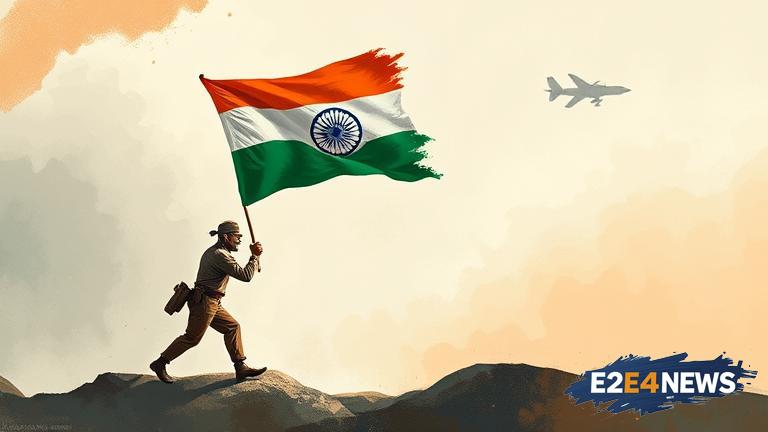In a recent statement, General Anil Chauhan, India’s Chief of Defence Staff, underscored the significance of being prepared for war in order to maintain peace. This assertion comes at a time when the country is navigating complex geopolitical relationships and security challenges. General Chauhan’s remarks emphasize that while India is a peace-loving nation, it is not pacifist and will not hesitate to take decisive action when necessary. This stance reflects the country’s commitment to protecting its sovereignty and interests. The General’s statement is in line with the ancient Indian proverb, ‘If you want peace, prepare for war,’ which suggests that a strong defense is essential for maintaining peace and stability. India has historically been a proponent of peaceful resolution of conflicts, but it has also demonstrated its willingness to use military force when required. The country’s military modernization efforts and strategic partnerships are testaments to its preparedness for any eventuality. General Chauhan’s comments are also a reminder that India’s security environment is becoming increasingly complex, with multiple challenges emerging from its borders and beyond. The country’s relations with neighboring countries, including Pakistan and China, are particularly sensitive, and any miscalculation could have far-reaching consequences. In this context, India’s military preparedness is crucial for maintaining the delicate balance of power in the region. The General’s statement has been welcomed by defense analysts, who believe that a strong military is essential for deterring aggression and maintaining peace. However, some experts have also cautioned that India’s military preparedness should be accompanied by diplomatic efforts to resolve conflicts peacefully. The Indian government has been engaging in diplomatic efforts to resolve outstanding issues with its neighbors, but the progress has been slow. Meanwhile, the country’s military has been undergoing significant modernization, with a focus on acquiring cutting-edge technologies and enhancing its operational capabilities. The Indian Air Force, Navy, and Army are all undergoing significant transformations, with an emphasis on network-centric warfare, cyber security, and special operations. The country’s defense industry is also being encouraged to develop indigenous capabilities, reducing dependence on foreign suppliers. General Chauhan’s statement has also sparked a debate about the role of the military in Indian society, with some arguing that the country’s peace-loving nature is being compromised by its growing military prowess. However, others believe that a strong military is essential for protecting India’s interests and ensuring the safety of its citizens. As the country navigates the complexities of the 21st century, its stance on peace and war will continue to evolve, reflecting its growing global influence and responsibilities. In conclusion, General Chauhan’s statement highlights the importance of preparing for war to maintain peace, reflecting India’s peace-loving yet non-pacifist stance. The country’s military modernization efforts and strategic partnerships are testaments to its preparedness for any eventuality, and its commitment to protecting its sovereignty and interests will continue to guide its actions in the years to come.
